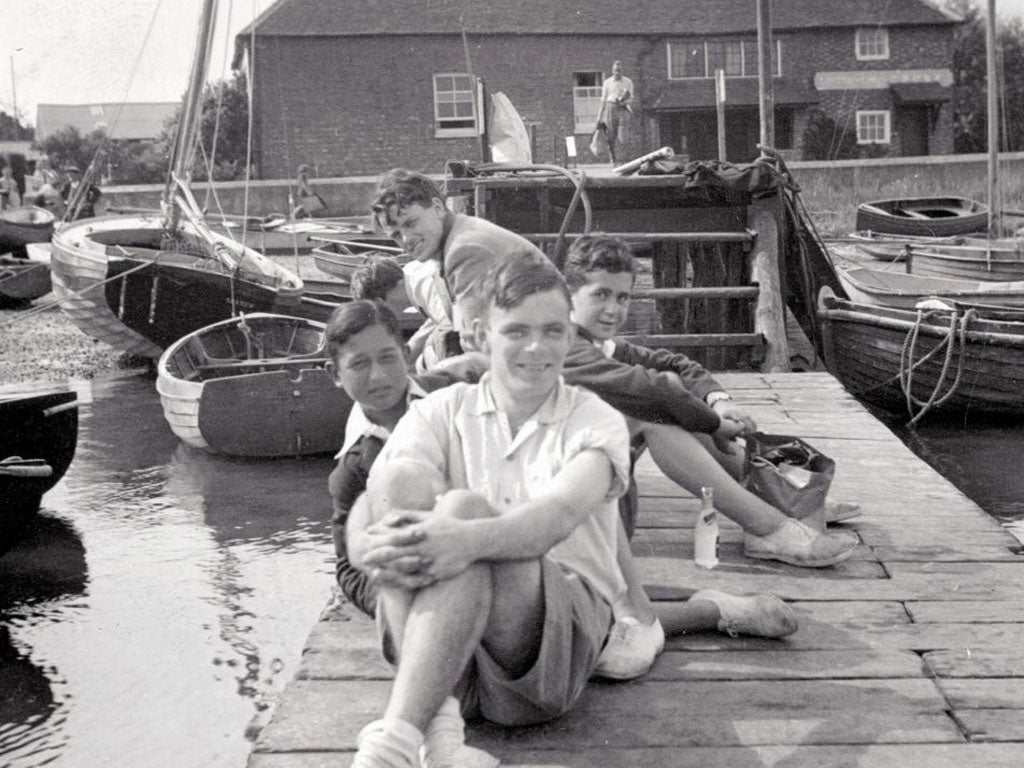The other Turing test: Codebreaker's beloved Monopoly pays him the ultimate compliment
Centenary of maths genius' birth marked with new edition of the game he adored

Your support helps us to tell the story
From reproductive rights to climate change to Big Tech, The Independent is on the ground when the story is developing. Whether it's investigating the financials of Elon Musk's pro-Trump PAC or producing our latest documentary, 'The A Word', which shines a light on the American women fighting for reproductive rights, we know how important it is to parse out the facts from the messaging.
At such a critical moment in US history, we need reporters on the ground. Your donation allows us to keep sending journalists to speak to both sides of the story.
The Independent is trusted by Americans across the entire political spectrum. And unlike many other quality news outlets, we choose not to lock Americans out of our reporting and analysis with paywalls. We believe quality journalism should be available to everyone, paid for by those who can afford it.
Your support makes all the difference.Few people can lay claim to beating the mathematical genius Alan Turing at Monopoly. William Newman did – and he was only 12 at the time.
Bent over the board game once again this week, Mr Newman, now in his 70s, painted a vibrant picture of the pioneer of computing, remembering someone "shy, but kind, friendly and open".
During the Second World War, Mr Newman's father, Max, a mathematician, worked with Turing at the Government Code and Cypher School at Bletchley Park, Britain's codebreaking centre, and was his mentor.
Mr Newman recalls Turing, on one rather eccentric occasion, being caught pushing a rhododendron leaf through his parents' front door. He had scratched a dinner invitation on to the leaf with a stick because he had nothing else to write with and did not want to wake the family. Turing became an uncle figure to Mr Newman and his brother, and used to rush round to their house to play a Monopoly set William had hand-drawn. "Alan lost miserably," Mr Newman said. "But he probably let my brother and I win."
This year marks the centenary of Turing's birth. His reputation has continued to grow, with tens of thousands of people signing a petition calling for his picture to be featured on £10 notes in recognition of his wartime work and his achievements in computing.
That accolade remains distant, but the home-made Monopoly board beloved of the code-breaker has now been launched in a special edition, after it was discovered last year in the Newmans' old family home. The original drawing is on display at Bletchley Park Museum. "I'd forgotten all about it," Mr Newman said. "It was like meeting an old friend when it turned up."
Winning Moves, the company which produces new editions of Monopoly, heard of the drawing and decided to mark Turing's centenary with a proper release of the game, thus making the mathematician the first Briton to have an edition dedicated to him. Peter Griffin, of Winning Moves, said: "To have the physical artefact like the board brings everything back; it was something he played on. There's something about a physical artefact like that brings them into the room again."
Turing's board replaced the names of traditional Monopoly properties to reflect his life: Mayfair became Bletchley Park and Park Lane was King's College, Cambridge, where he studied. He also included cryptic clues for players to explore, such as "Auntie Flo is not so well".
The profits from the initial run of 2,000 boards, which has been backed by Google, will support the restoration of Bletchley Park, the Buckinghamshire estate where Turing, Max Newman and others cracked the codes that helped speed the Allied victory over Hitler's Germany.
Mr Newman remembers Turing as a big part of his family's life, saying that his presents, which included a steam engine and a hobbyist tool kit, were "especially thoughtful and generous". After meeting in 1936, Turing and Max Newman collaborated for almost 20 years. Turing was inspired to write his seminal maths paper "On Computable Numbers" after a lecture by Newman. "[My father] recognised that [Turing] was a special guy from early on," said Mr Newman.
They worked together at Bletchley, with Turing developing the "bombe" device to decode messages encrypted by Nazi Enigma machines, and Newman heading development of the Colossus, recognised as the first modern computer. "My father always thought of Alan as a protégé – someone who was vulnerable and who he should look after," Mr Newman said.
His father later moved to the University of Manchester and offered Turing a job. It was then their friendship really blossomed. "He came on holiday with us to North Wales," Mr Newman said, recalling spirited talks Turing had with his father, Bertrand Russell and Rupert Crawshay-Williams. "He was a close family friend; my mother and father were very fond of him."
The Newmans stayed close to Turing and Max spoke on his behalf at his 1952 trial for gross indecency stemming from his homosexual relationships, and would undergo a chemical castration. He died two years later after eating an apple laced with cyanide.
His death was a huge blow to the Newman family. Lyn Newman said in a letter it was "the most shattering thing that has ever happened to me".
Newman added: "Turing's legacy is something that gay people can take pride in, the fact a gay person had this huge impact in the war. It's hard to measure his impact on computing, but he was certainly one of the first people to recognise it could be done."
Join our commenting forum
Join thought-provoking conversations, follow other Independent readers and see their replies
Comments